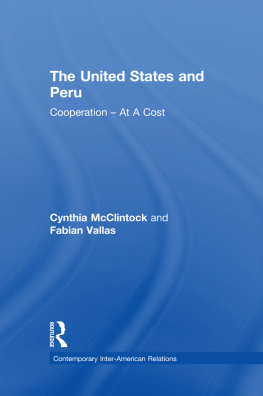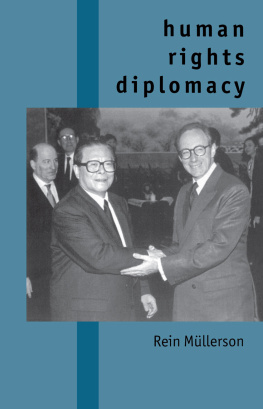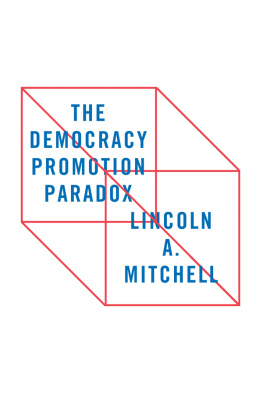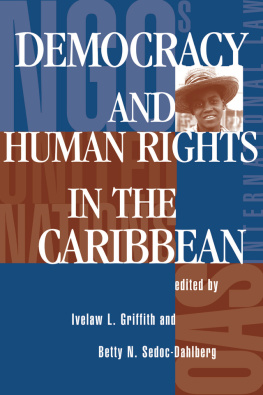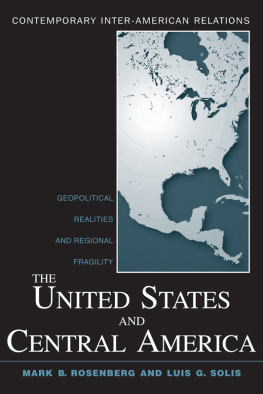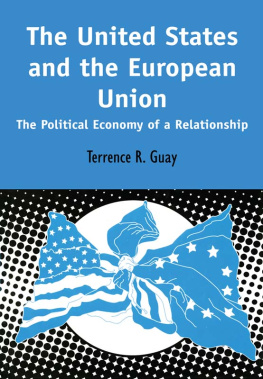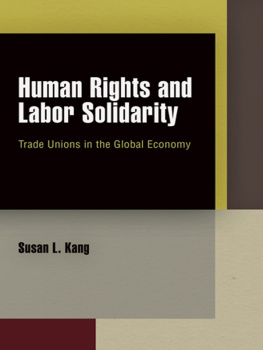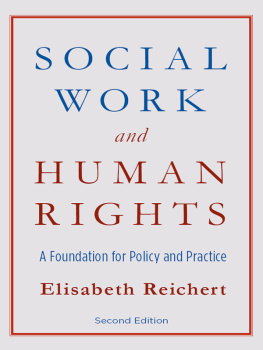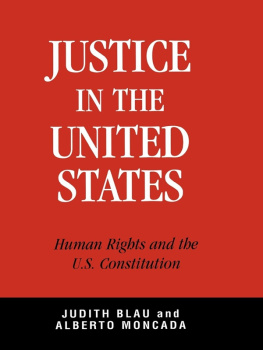T HE U NITED S TATES AND P ERU
C OOPERATION AT A C OST
O THER T ITLES IN THE C ONTEMPORARY I NTER -A MERICAN R ELATIONS S ERIES
E DITED BY J ORGE D OMNGUEZ AND R AFAEL F ERNNDEZ DE C ASTRO
T HE U NITED S TATES AND M EXICO : B ETWEEN P ARTNERSHIP AND C ONFLICT
Jorge Domnguez and Rafael Fernndez de Castro
T HE U NITED S TATES AND C HILE : C OMING IN FROM THE C OLD
David R. Mares and Francisco Rojas Aravena
T HE U NITED S TATES AND V ENEZUELA : R ETHINKING A R ELATIONSHIP
Janet Kelly and Carlos A. Romero
T HE U NITED S TATES AND A RGENTINA : C HANGING R ELATIONS IN A C HANGING W ORLD
Deborah Norden and Roberto Russell
T HE U NITED S TATES AND P ERU : C OOPERATION AT A C OST
Cynthia McClintock and Fabin Vallas
Published in 2003 by
Routledge
711 Third Avenue, New York,
NY 10017, USA
Published in Great Britain by
Routledge
2 Park Square, Milton Park, Abingdon,
Oxon OX14 4RN
Routledge is an imprint of the Taylor & Francis Group, an informa business
Copyright 2003 by Taylor & Francis Books, Inc.
All rights reserved. No part of this book may be printed or reproduced or utilized in any form or by any electronic, mechanical, or other means, now known or hereafter invented, including photocopying and recording, or in any information storage or retrieval system, without permission in writing from the publishers.
ISBN 13: 978-0-415-93463-3 (pbk)
ISBN 13: 978-0-415-93462-6 (hbk)
Library of Congress Cataloging-in-Publication Data
McClintock, Cynthia.
The United States and Peru : cooperation at a cost / Cynthia
McClintock, Fabian Vallas.
p. cm. (Contemporary inter-American relations)
Includes bibliographical references (p.) and index.
ISBN 0-415-93462-1 (hardback) ISBN 0-415-93463-X (pbk.)
1. United StatesForeign relationsPeru. 2. PeruForeign
relationsUnited States. I. Vallas, Fabian. II. Title. III. Series.
E183.8.P4 M37 2002
327.73085dc21
2002008960
We were very pleased when Jorge Domnguez and Rafael Fernndez de Castro invited us to write this book for their series. The project conferences in Mexico City in 1998 and 1999 were extremely stimulating, and we are grateful for the very thoughtful and knowledgeable input from conference participants.
At that time, however, we did not anticipate the intensity of the drama of Perus 2000 elections and the critical questions about U.S. support for Latin American democracy that would be posed by these rigged elections. It was due to the invitation of Jorge Domnguez and Rafael Fernndez de Castro that we were poised to research and analyze U.S.-Peruvian relations during the tumultuous events of 2000, and we are most appreciative.
The cliffhanging drama of U.S.-Peruvian relations during 2000 engaged a broad and wonderful community of U.S. and Peruvian scholars, and we were proud to be active members of this community. In large part through the efforts of the Peru Section of the Latin American Studies Association (LASA), chaired at the time by Catherine Conaghan and Julio Carrin, this community worked to support democracy in Peru as best we could; in Peru and on the Section listserve, we shared our experiences and debated our interpretations. In Lima, led by Rafael Roncagliolo with the assistance of James Rudolph and Rudecindo Vega, Transparencia organized an invaluable pre-election conference in February 2000, and Transparencia also made possible a LASA Peru Section election-monitoring delegation for the first round of the elections. In Washington, Coletta Youngers at the Washington Office on Latin America was pivotal to the organization of numerous conferences and meetings that yielded information essential for this book. Support for these gatherings from colleagues at George Washington Universityin particular Peter Klarn and Marie Pricewas also fundamental.
We are also grateful to the many interviewees for this book who not only gave of their time and knowledge but also trusted us to be fair in our analysis of a complex coyuntura. Among these, we would particularly like to thank Alberto Bolvar, Karen de Young, Luigi Einaudi, Morton Halperin, Dennis Jett, Salomn Lerner, Ricardo Luna, Enrique Obando, Angel Paez, Ted Piccone, Anthony Quainton, Peter Romero, Sharon Stevenson, Carrie Thompson, Arturo Valenzuela, and John Youle. Given the sensitive nature of key questions in the book, some interviewees requested their comments to be off-the-record, and we are particularly grateful for these interviewees confidence.
This book is much the better for the comments and corrections made on earlier drafts by several persons. We would especially like to thank Ruben Berrios, Jeremy Bigwood, Richard Dawson, Coletta Youngers, and an anonymous reviewer for Routledge Press.
We would like to note briefly the division of labor between the books coauthors. Cynthia McClintock was the lead author for Chapters ; Fabian Vallas was the lead author for Chapter IIIB and the Postscript. In 1998 and 1999, McClintock and Vallas conducted most interviews in Lima jointly; after 1999, interviews were by McClintock. In 2001, transcripts of the vladivideos were secured by Vallas. McClintock also gratefully acknowledges expert research and survey assistance in Lima at numerous intervals by Mnica Villalobos.
This book is dedicated to members of our families. The book is dedicated by Fabin Vallas to his parents. In spite of a large family of eight children and limited economic resources, his parents made major sacrifices to provide education for them. He would not have been able to study without the daily sacrifice of his mother and the responsibility and commitment of his father. Cynthia McClintock dedicates the book to her daughter, Jeannette Alicia McClintock, who has bountiful warmth, keen insight, and exceptional common sensenot conventional teenager attributesand has made her mother very proud. Cynthia dedicates the book also to her sister, Jeannette, and brother, Kelly. Cynthia, who is the youngest of the three siblings, has throughout her life enjoyed warm, enthusiastic support for her endeavors from her brother and sister. She feels very fortunate for the love and encouragement of her work that she has received from Alicia, Jeannette, and Kelly.
The transition from authoritarian rule to constitutional government.
The continentwide economic depression of the 1980s and the subsequent shift toward more open market-conforming economies.
The end of the Cold War in Europe.
The transformation of relations with the United States.
Each of these major events and processes was an epochal change in the history of Latin America and the Caribbean. More striking is that all four changes took place within the same relatively short time, though not all four affected each and every country in the same way They became interconnected, with change on each dimension fostering convergent changes on other dimensions. Thus, by the beginning of the new millennium, we had witnessed an important transformation and intensification in U.S.-Latin American relations.
This book is part of a series of ten books on U.S. relations with Latin American and Caribbean countries. Each of these books is focused on the fourth of these four transformationsnamely, the change in U.S. relations with Latin America and the Caribbean. Our premise is that the first three transformations provide pieces of the explanation for the change in U.S. relations with its neighbors in the Americas and for the changes in the foreign policies of Latin American and Caribbean states. Each of the books in the series assesses the impact of the epoch-making changes upon each other.

